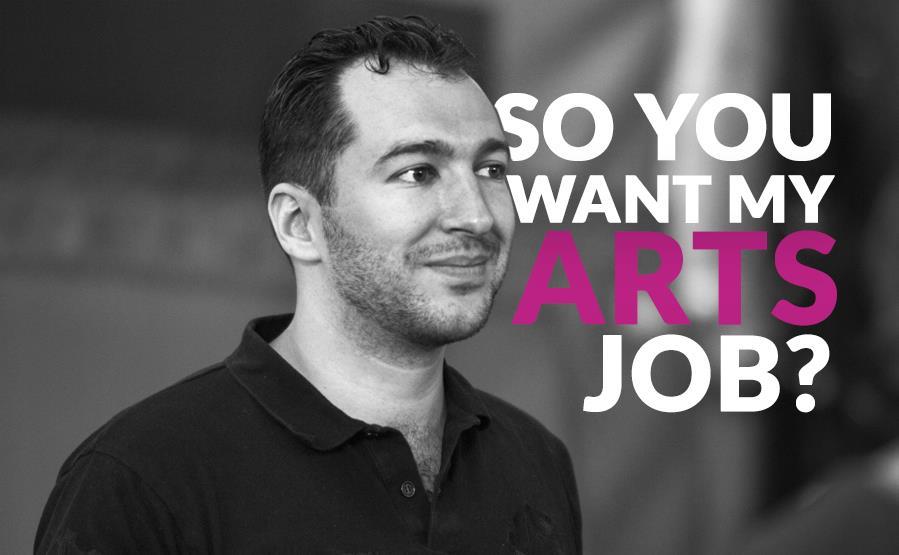Loic Marques is the Training Director at the Flying Fruit Fly Circus. He is a French National sports acrobatic champion and former trainer at the Ecole de Cirque de Quebec amongst others. Marques specialises in acrobatics and coaches a large range of apparatus to a high technical level (trampoline, Korean and Hungarian teeterboard, Russian bar, hand to hand, banquine, handstand). He possesses a vast knowledge in biomechanics and analyses of acrobatic movement, with expertise in practical and theoretical physical preparation.
How do you explain what you do to your parents?
I oversee the training department at the Flying Fruit Fly Circus in Albury, Australia’s National Youth Circus. When I’m explaining what I do, I always say I’m an acrobatic trainer rather than circus, as it’s just easier for people to understand. I explain how I break down skills, and how circus training is quite similar to high performance sports.
How did you get your start in your career?
About 17 years ago I was on holidays in the South of France driving on a highway, and I picked up three hitchhikers who were juggling on the side of the road. I thought that was really funny. At the time I was doing gymnastics so I picked them up, we stopped in Nice, and spent a whole day in a park doing some juggling, hand balancing, adagio, hand to hand and that’s where my curiosity for circus started.
I approached a circus school not far from me who were doing some professional training and quickly started teaching there because they didn’t have a teacher in my field. So that’s how I randomly started in circus.
What is the biggest misconception about working as a circus trainer?
People don’t understand that you actually train circus, that’s the first thing. They always think its family circus so you learn from your parents. If they’re not in circus already, they don’t usually understand that it’s an institutional thing – that you can go to a school and learn circus. That’s the first step, explaining that circus training is actually a thing.
Then, it’s about explaining the parallel with sports – it’s physical activity. Day to day, training in a circus institution looks very similar to training in a sports institution. The difference is the artistic input we have in circus. But at the end of the day when you produce an effort (however you want – might be here at Fruit Fly, might be in a sport, might be in the army) – this is physical effort and you have to treat it the same because we all respond to the same physiological rule.
What is the most memorable thing that’s ever happened in your career?
I was lining up to go on stage for Circus Knie in Switzerland and I was on my phone, scrolling through social media, trying to clear my mind before going on stage, and a camel came up and almost ate my phone.
I was doing teeterboard with an elephant at the time.
In an interview for your job, what would you be looking for?
I think I’m always looking at the best conditions to train the best artists possible. It’s always very hard to find the right circumstances in a training institution. This was a huge selling point for the Fruit Fly Circus for me. It’s impossible to have it 100% anywhere, but I’ve visited many training institutions around the world and I think the conditions are some of the best here at the Flying Fruit Fly Circus.
What’s the best thing happening in circus training at the moment and why?
Innovation. I think innovation is definitely the best. It is changing fast and it’s not coming from trainers or the institutions, it is coming from the young artists themselves. The style is changing, the energy is changing, the message that is sent to the audience is changing. I think that is what is the most interesting thing happening in circus training at the moment.
More in this series:
So you want my arts jobs: General Manager
So you want my arts job: Google Arts and Culture lead
So you want my arts job: Madman Marketing Manager
So You Want My arts job: Mona Curator
So you want my arts job: Fight Director
So you want my arts job: Circus Rigger




